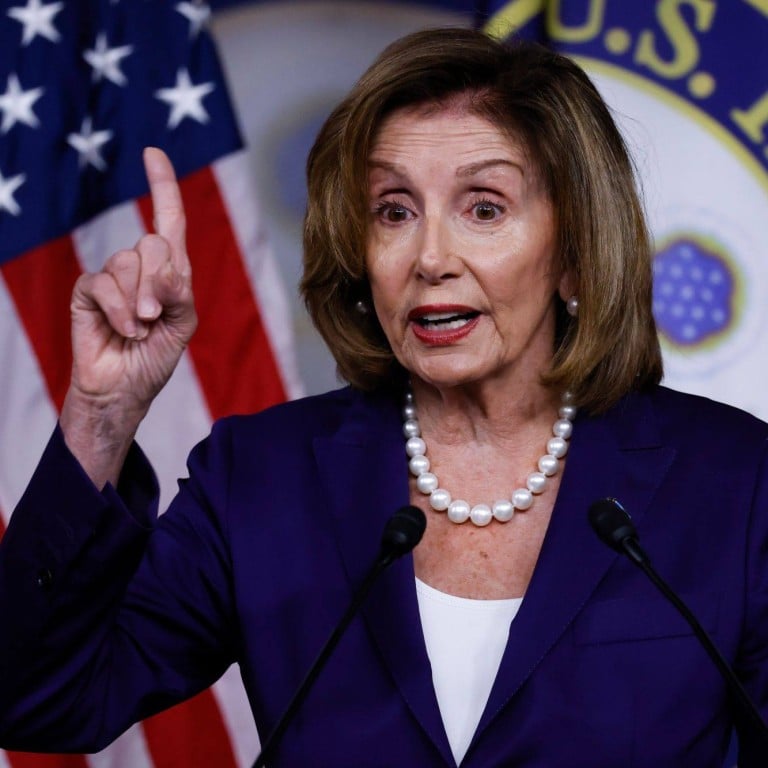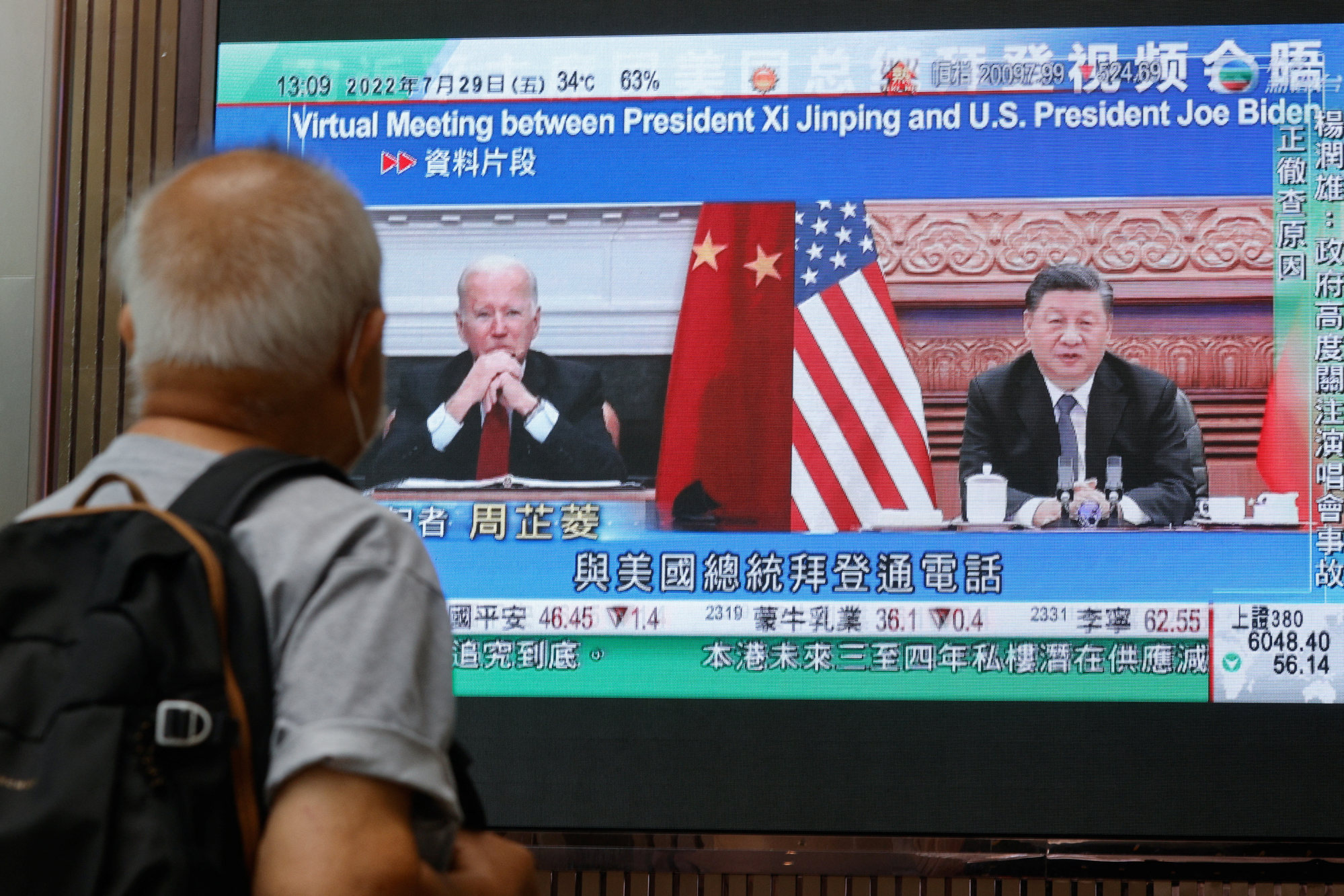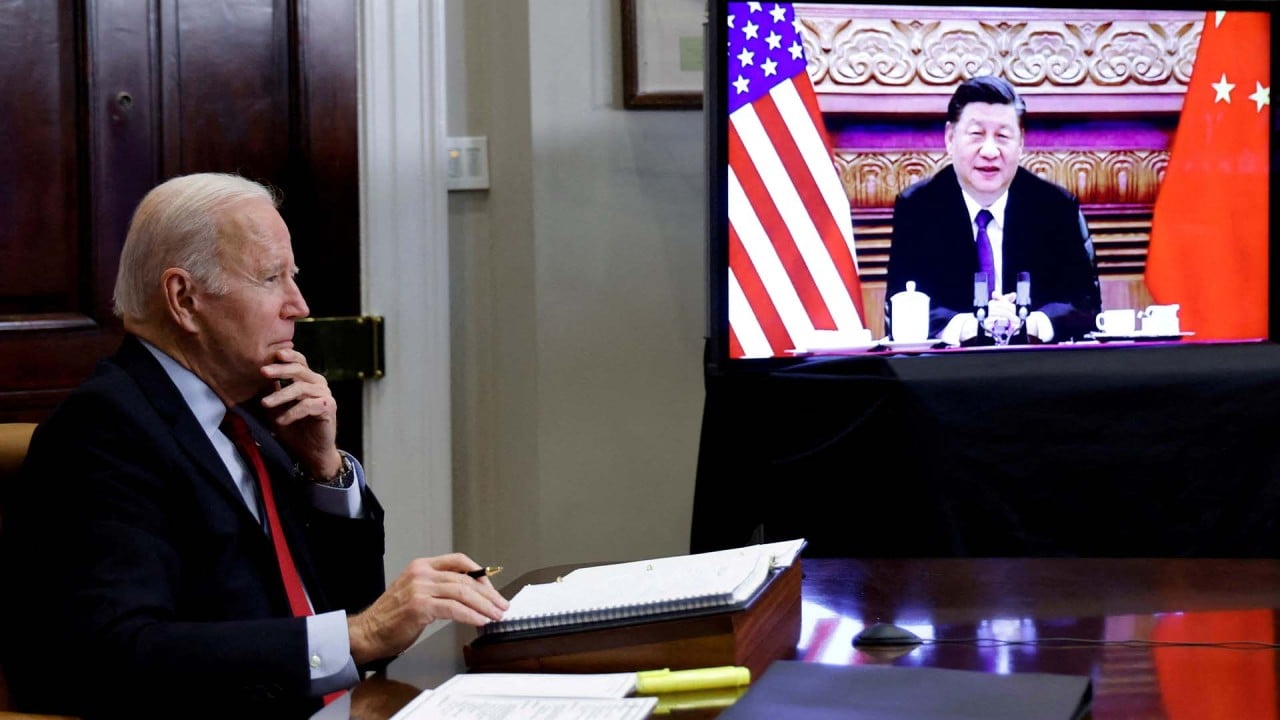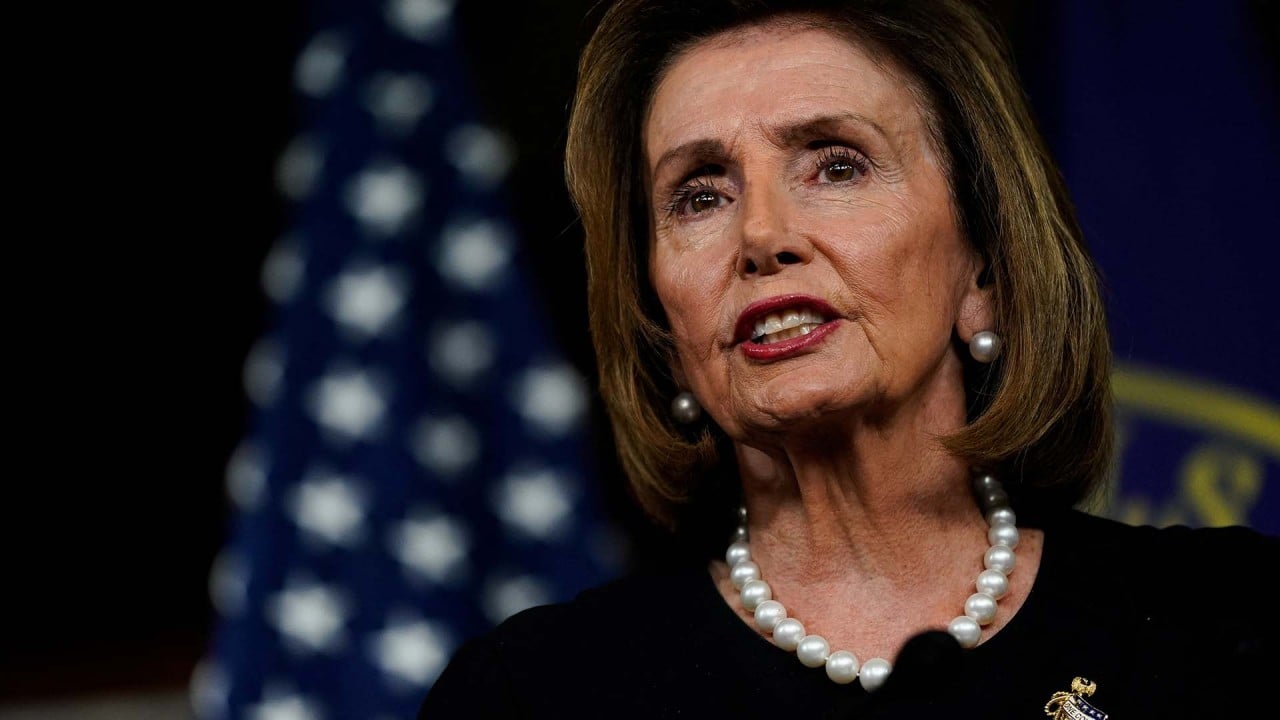
Prospect of a Nancy Pelosi trip to Taiwan jolts Washington as well as Beijing
- Pelosi’s reported plans to visit the island shine a light on the complex and volatile politics surrounding Washington’s relationship with Taipei
- A US president has little power to stop a speaker of the House from making such a trip, a point China’s one-party leadership may not understand
In 1995, at a heated moment in US-China relations, a junior member of Congress named Nancy Pelosi lashed out at Beijing for thinking it could stop a senior politician from travelling between Taiwan and the United States.
“Let us not let China violate human rights, trade and proliferation and then dictate to us whether the president of Taiwan can come into this country,” Pelosi said in a speech on the House floor, urging the White House to ignore Beijing’s demands and let Taiwanese leader Lee Teng-hui make a highly symbolic trip onto US soil.
Twenty-seven years later, Pelosi is now the speaker of the House of Representatives, and once again Beijing is trying to stop a symbolic trip between the US and Taiwan: hers.
The prospect of a Pelosi visit to Taiwan, widely reported but still unconfirmed, has jolted Washington.
It exposed a rare public rift between Pelosi and US President Joe Biden. It brought cheers from her fierce Republican rivals. It elicited Chinese threats about “playing with fire”, while it received the silent treatment from Taiwan’s de facto embassy in Washington, which refused to comment at all.
Most of all, it has brought to light the complex and volatile politics surrounding Washington’s relationship with Taipei – one that officially is described as “unofficial”, yet has also seen Biden say publicly three times as president that the US would defend it if mainland China attacked.
“This is normal interaction,” said David Stilwell, who served as the State Department’s top East Asia adviser in the Donald Trump administration, referring to Pelosi’s potential trip to Taiwan. “There was no need to make such a huge deal in the run up to this.”
“Because as soon as you make this an issue – a very public issue that now the government of China has to react to – you’re going to see bad behaviour,” he said. “You’re going to set yourself up for the risk of overreaction.”
Taiwan ‘will have to bear wrath of Beijing’ if Pelosi visit goes ahead
Talk of a Pelosi visit – part of an Asia trip with a congressional delegation that is expected to include multiple stops, including Japan – comes as relations with Beijing crater and Washington becomes increasingly supportive of Taipei. Biden and Chinese leader Xi Jinping spoke to each other for more than two hours on Thursday, and Taiwan was a major focus of their call.
China claims the self-governed island as its own territory, and has not ruled out the use of force to take it under its control. The US, at the same time, is legally obligated to help Taiwan defend itself.
But a trip by Pelosi – a long-time critic of the Chinese government, especially on human rights – seems to have touched a special nerve.
“The military thinks it’s not a good idea right now,” Biden told reporters on July 20. “But I don’t know what the status of it is.”
Many interpreted that as Biden opposing the trip, although some say that China’s Communist Party leadership might not grasp that he has little power to stop Pelosi from going.

As speaker of the House, she is second in line to the presidency after the vice-president, and she is a member of Biden’s own political party. But like Biden, she is also a head of a separate and co-equal branch of government.
“Fundamentally I don’t think they understand our structure,” said Russell Hsiao, executive director of the Global Taiwan Institute, referring to Beijing. “For them, it would be inconceivable that the most powerful politician in the world, in their view, is unable to rein in a leader of his own political party.”
Many in Washington are gaming China’s likely reaction, assuming the trip goes ahead. There will almost certainly be more verbal outrage, but US opinions differ on whether China’s response would include things like stepped-up air or sea incursions near Taiwan, even an overflight of the island by the People’s Liberation Army air force, and to what extent the US should intervene if any of that happens.
“We can’t agree with China that congressional visits are provocations,” said Dan Blumenthal, Asia studies director with the conservative American Enterprise Institute. “It would make future visits, arms sales, partnerships all the more difficult, leading to more bullying.”
“Our relationship with Taiwan, we have to define it, not them.”
China decries ‘provocations’ after US destroyer sails through Taiwan Strait
Another factor at play is US domestic politics. A survey last month by Pew Research found that 82 per cent of Americans had an unfavourable view of China, an all-time high.
“Biden’s in a pickle,” said Robert Sutter, a George Washington University professor and former China director of the State Department’s intelligence and research bureau. “If it looks like he’s backing away because of Chinese pressure, it’s not going to go well.”
“But I also think China is trying to take advantage of him,” Sutter added.
Biden’s political opponents will be watching for any issue related to the visit they can use against him, analysts said.
“You’ve seen a whole range of more conservatives willing to go, be on the plane,” said Michael Fonte, Washington director with the US mission of Taiwan’s ruling Democratic Progressive Party. “If she doesn’t go, it’s a Democratic president that has stopped her.”
Shelley Rigger, a professor at Davidson College in North Carolina and the author of multiple books on Taiwan’s politics, said that the US had a duty to help the island protect itself but that it was unclear how Pelosi’s trip would do that.
“I’m begging somebody to explain to me how Nancy Pelosi going to Taiwan right now makes Taiwan safer,” she said. “We have an obligation to our partner to consider whether its security is enhanced or diminished by the actions that we take.”
China has already sent hundreds of military jets buzzing by Taiwan’s air defence zone in recent months, and its state media has threatened war to take control of the island and its 23 million people.
China-Taiwan military conflict is ‘not inevitable’: British spy chief
“Will this cause more heartache for Taiwan? My friends in Taiwan are a bit worried,” said Fonte. “I don’t think the PLA will shoot down her plane, but what is the fallout?”
He added that as tensions rise, so do the risks of an unintended military clash. “There’s so much weaponry around Taiwan, under the water, on the water, over the water,” he said.
Analysts said that one way to reduce tension at least slightly would have Pelosi avoid being in Taiwan on Monday, when China celebrates PLA Day for the founding of its military, which could be particularly inflammatory. But the coming months in Beijing will be especially sensitive no matter what, as Xi prepares to take a precedent-breaking expected third term as leader.
Pelosi was originally supposed to go to Taiwan this spring, but had to postpone the trip after she tested positive for Covid-19. The last time a House speaker went to the island was in 1997, two years after Lee Teng-hui’s visit to the US.
Not long after Lee’s trip – for a reunion at his alma mater Cornell University – China began launching missiles towards Taiwan, and Washington responded by sending two aircraft carriers to the Taiwan Strait. Both sides eventually backed down. A few months later, Speaker Newt Gingrich went to Taipei and met with Lee.
“I encourage Nancy to go, particularly now that it’s public,” Gingrich told Fox News on Wednesday. “I think it would be humiliating and destructive if she were to back down.”
Analysts say China is vastly different now than it was a quarter-century ago – stronger, richer and more powerful – although they split on whether that means Pelosi’s trip should go on.
“Something different today is that present US-China relations are fraught with a more aggressive Beijing,” said James Lin, an expert in the history of Taiwan’s foreign relations at the University of Washington’s Henry M. Jackson School of International Studies, “which means tensions are high and consequently concerns over risks are higher too.”




